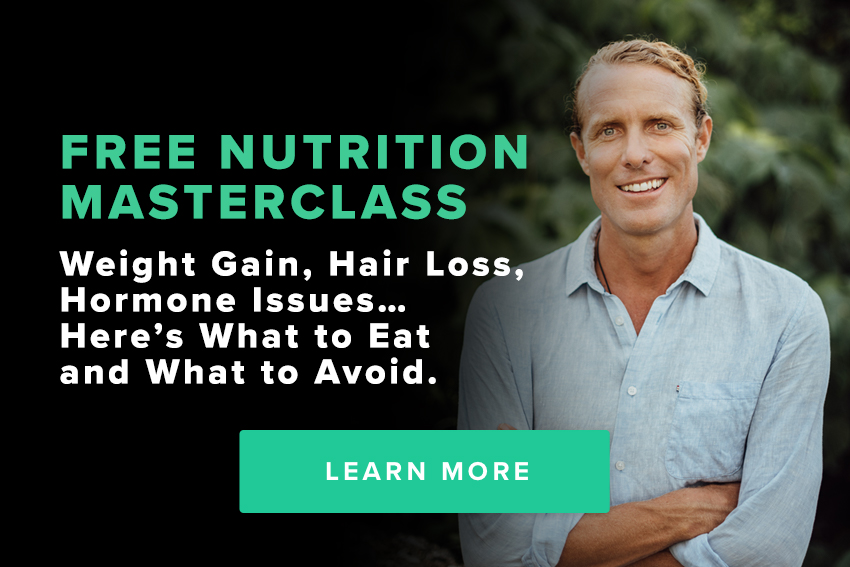Rediscovering Ancestral Nutrition for Ultimate Health
Many of us are armed with the knowledge of holistic health and nutrition, but we’re unsure where to go from there. But the next step is learning how to eat consciously, intuitively, and sustainably - and when you do, your health will thrive.
As I’ve discovered throughout my 15-years in this industry, there isn’t any one-size-fits-all approach to eating for your needs (in fact, this is one of the biggest problems when it comes to the mainstream diet industry), but I do know that there are some rules and practices that all diet types can follow. It is part of my mission to dive deeper into the commonalities that make up a healthy diet, many of which stem from our understanding of ancient nutrition.
You see our ancestors had the right idea when it came to nutrition. Since the beginning of time, we ate in a simple and natural way - it’s only been in the last century that our instinctive habits have been mostly given way. And it’s no surprise that this change in our innate diets is correlated with a rise in chronic disease! We’re only just now seeing the long-term impacts of the ‘supermarket generation’ - those who grew up on heavily packaged foods, designed to last a lifetime on shelves with artificial additives, preservatives, flavors, and colors. Before that we grew our own foods, we hunted, we gathered, and anything we couldn’t source we would trade with others to secure supply.
Thankfully there are still some cultures around the world that are thriving in this way today, have low rates of disease and live long happy, and healthy lives…
We can see the proven existence of diet correlating with longevity in what is known as the ‘Blue Zones’. Blue Zones are regions of the world where a higher-than-usual number of people live much longer than average. The term first appeared in his November 2005 National Geographic magazine cover story, "The Secrets of a Long Life", and the evidence is astounding. And this dials back to one thing - the food that they eat.
In places like Icaria in Greece, an island in Greece, or Ogliastra in Sardinia, Italy, where people eat a Mediterranean diet rich homegrown vegetables and of course a little red wine and olive oil - and they’re exceeding their expected age.
Then there is Okinawa, Japan, home to the longest-lived women, who eat an Asian influenced diet rich in incredible vegetables, fermented soy-based foods, some animal products, and they practice tai chi as a meditative form of exercise.
There is also the Nicoya Peninsula in Costa Rica, which includes a diet based around vegetables, beans, and corn - all-natural, whole foods.
It is thought that genetics probably only account for 20–30% of longevity. Therefore, environmental influences, including diet and lifestyle, play a huge role in determining your lifespan. And the commonalities between these diets in that they are full of local and organic legumes, vegetables, whole grains, nuts, and seeds. They don’t overeat. They consume alcohol in moderation, exercise daily, get ample sleep, and have a strong sense of life purpose, family, and religious and social networks.
Many other indigenous groups outside these blue zones still have this close, natural connection to their food, culture, and environment and embrace ancestral nutrition. I have lived for a number of years in a tiny island nation in the Pacific Ocean called Vanuatu where I first experienced what it can truly be like living in a way where 100% of what you eat comes from your garden or surrounding small scale farms or the ocean nearby. It’s an incredible feeling.
But not everyone has access to live this way and the question we need is how to encompass our understanding of ancient nutrition and bring it into the modern world with its new and myriad challenges. And the best place to start is to practice adding in more of the foods that we know heal the body and support overall health and the rest will begin to fade away over time.
Remember that we are all on our own journeys when it comes to health and wellness, so avoid food shaming of others or even yourself! But especially those you are working with to help transform their health. And also remember that food is meant to be enjoyed; so don’t be too harsh or restrictive. It’s okay not to eat 100% clean, all of the time, or have a glass of wine with dinner - because as you now know keeping stress to a minimum (especially around what you eat) and happiness to a maximum is crucial for health.
If you’re looking to develop an overarching understanding of how to eat in a healthy, sustainable, mindful, and conscious way, then it might be time to take your understanding of nutrition further.
We have just launched the first-ever Food Matters Nutrition Certification program, and there’s still time to enroll before we begin together on Monday! Over 9 modules you’ll come to understand a holistic approach to nutrition, and the health & wellness industry as a whole, like never before.
If becoming a nutritionist has been your lifelong dream, or you just want to take your understanding further, then this is the program for you! You can discover more, including our special 50% off foundation investment, here!
Discover how to eat your medicine to heal your gut, eliminate bloating, skin issues and hair loss as I share seven nutrition principles in this free masterclass. Running for a limited time only.









